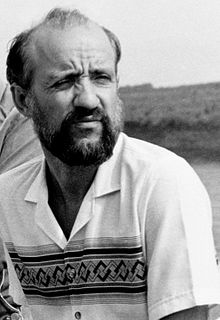This article needs additional citations for verification. (May 2011) |
Arthur Winfree | |
|---|---|
 Arthur Winfree in 1983 | |
| Born | May 15, 1942 St. Petersburg, Florida, United States |
| Died | November 5, 2002 (aged 60) |
| Awards | Norbert Wiener Prize in Applied Mathematics |
| Scientific career | |
| Fields | Theoretical Biology |
| Institutions | University of Arizona |
Arthur Taylor Winfree (May 15, 1942 – November 5, 2002) was a theoretical biologist at the University of Arizona.[1] He was born in St. Petersburg, Florida, United States.[2]
Winfree was noted for his work on the mathematical modeling of biological phenomena (see Complexity and Singularity (system theory)): from cardiac arrhythmia and circadian rhythms to the self-organization of slime mold colonies and the Belousov–Zhabotinsky reaction. Winfree was a MacArthur Fellow from 1984 to 1989, he won the Einthoven Prize for his work on ventricular fibrillation, and shared the 2000 Norbert Wiener Prize in Applied Mathematics[3] with Alexandre Chorin.
He was the father of Erik Winfree, another MacArthur Fellow and currently a professor at the California Institute of Technology, and Rachael Winfree, currently a professor in the Department of Ecology, Evolution and Natural Resources at Rutgers University.
The Arthur T. Winfree Prize was established by the Society for Mathematical Biology in his honor.[4]
- ^ Johnson, George (November 22, 2002). "Dr. Art Winfree, 60, Dies; Plumbed the Rhythms of Life". New York Times.
- ^ "Arthur Winfree obituary". SIAM News.
- ^ Strogatz, Steven (June 2003). "Obituary: Arthur Taylor Winfree". Physics Today. 56 (6): 74–75. doi:10.1063/1.4776726.
- ^ "Arthur Winfree Prize". Society for Mathematical Biology. Retrieved July 3, 2022.